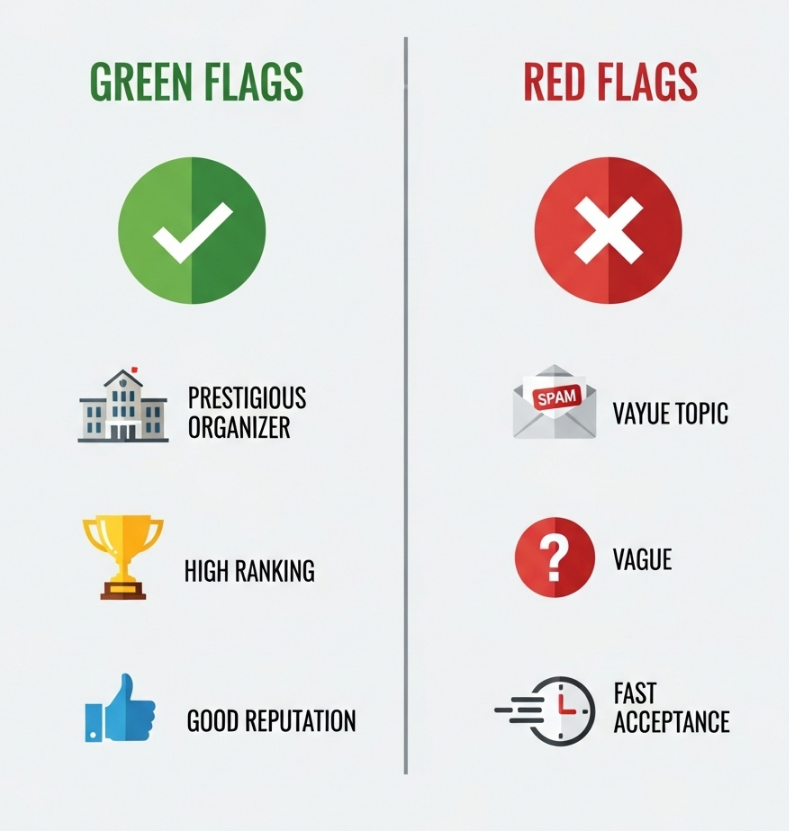

683 views||Release time: Oct 22, 2025
They exploit the "publish or perish" pressure on researchers, especially early-career academics and students, who need conference presentations and publications for their CVs, graduation requirements, or promotions. Organizers profit by charging high registration fees for a low-quality event.

Be very cautious if you see these warning signs:
Aggressive Spam Emails: You receive unsolicited, overly flattering emails inviting you to speak or submit, often outside your area of expertise.
Vague and Overly Broad Scope: The conference claims to cover dozens of unrelated fields (e.g., "International Conference on Engineering, Medicine, and Social Sciences").
Unprofessional Website: The website has typos, grammatical errors, broken links, or stock photos that don't match the supposed location.
Fake or Unverifiable Committee: The listed organizers or keynote speakers are not recognized experts, cannot be easily verified, or sometimes aren't even aware their names are being used.
Promises of Rapid Acceptance/Publication: They guarantee acceptance or publication within days or a couple of weeks, suggesting no real peer review is happening.
Hidden or Unclear Fees: Registration fees are hard to find or only appear after submission.
Lack of History or Reputable Sponsor: The conference has no track record from previous years or is not sponsored by a recognized university or professional society (like IEEE, ACM, etc.).
Misleading Indexing Claims: They make vague promises about indexing in Scopus, EI Compendex, or Web of Science ("will be submitted to...") but provide no proof from past events.
Getting involved with a fake conference can harm your career:
Wasted Money: High registration fees with no return on investment.
Damaged Reputation: Association with a predatory event looks bad on your CV.
Low-Quality Publication: Your paper appears in non-indexed, low-visibility proceedings, offering little academic value.
Before submitting or registering:
Check Indexing: Search Scopus, EI Compendex, or Web of Science for past proceedings of the same conference series.
Ask Colleagues: Consult your supervisor, librarian, or senior researchers. They often know the reputable events in your field.
Check Sponsorship: Verify if the claimed university or society sponsor is legitimate.